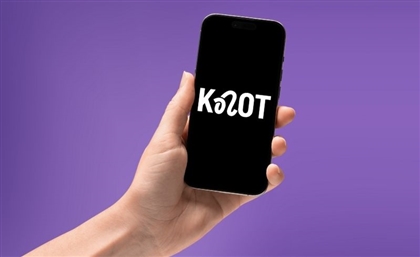How to Validate Your Idea, According to Middle Eastern Investors
With entrepreneurship swiftly evolving, say good bye to the traditional 50-page business plans. We asked 4 leading MENA investors for their insights on validating a startup idea; whether its developing a minimal viable product, using traction or using the build-measure-learn approach.

The majority of startups fail; whether it's because of the lack of need in the market, the lack of passion and resilience of its team members, because they are targeting the wrong customers, or lack the knowledge in a specific area. But these reasons should not demotivate rising entrepreneurs from pursuing their ideas; instead, getting advice from the right people on how to validate your idea may be a strong building block to craft an empire. Launching a startup is always a hit-or-miss proposition, and instead of wasting resources, time and effort writing oversized perfected business plans, investors now recommend the "lean startup" methodology. This combines a process of planning, building, gathering customer feedback and pivoting accordingly to establish a growing startup. We've asked four investors across the MENA region on their strategies to validate an idea, and here is what they said.
1. Youssef Ayoub
Youssef Ayoub, who switched his career in a leading multinational firm to become Managing Partner of Tanmeya Capital Ventures shares his perspective on validating an idea. "I believe in three words: market need, insight and resilience, " he states. "First, there must be a need in the market - in other words, a gap that you are filling; the individual must research and have knowledge of the market before proceeding." He continues to explain that tackling insight and the way you communicate is more important than the idea itself. Take the Egyptian food startup Mumm, he says. "There are people who are busy and don't have time to cook and there are stay-at-home cooks who want income, so Mumm found two insights, connected them and created a catering platform," Ayoub explains. The third stage is being an operator and resilient, which he believes is of much significance, in order to assess whether this idea will perform better in the long run. "You need to be patient, have the stamina to continue and believe in the idea."

2. Willie Elamein
The Managing Director of Flat6labs, Willie Elamein, believes investors are looking for what is called "traction." "Traction is validation by people other than the founders that their product or service solves an actual problem; you can call these people your early adopters," Elamein asserts. He continues to say, "when you have an idea, make sure you can convert it into the the simplest form as quickly as possible, then get your early adopters to give you as much feedback as possible over many iterations of your product to show investors how valuable your company can be." Elamein ends with a tip, saying that "when early adopters love your product or use it for long periods, that is the best way to show investors that you're on the right track."
3. Ibrahim Mahgoub
Incubator Program Manager at the newly launched FEPS Business Incubator, Ibrahim Mahgoub starts off by pointing out: "most entrepreneurs I worked with dealt with validation as a step before doing the real business. But unfortunately, validation is the real business." He continues by setting up a few guidelines to help entrepreneurs validate their way to a product-market. "First is prioritising, where you should identify the most important assumptions and test them rigorously," Mahgoub claims. Next, "you should carefully design experiments in a way that teaches you certain things, as if it is a theory, because it is; proving that your idea delivers value to your customers, and captures value from them." The third insight Mahgoub shares is to use generic tools for guidance, but customising your own.
"The reason why business incubation is not even comparable to microbiological incubation - such as cultivating bacteria in a lab - is that there is much less in common between startups than there is between living organisms. So we couldn’t design a perfect environment for a group of startups the same way we do for a certain strain of Bacteria, " he asserts. "Thus, the knowledge you are seeking through validation can only be discovered by you and your team’s hard work, there is no way to extract it from a book or a talk or an interview like this one." Last but not least, Mahgoub believes you should not validate because you need funding, "instead, validate because you want to build a good company, and then money will come."

4. Yasmine Nassar
Ex-Vice President of Strategy at 138 Pyramids and currently Chief Strategy Officer at RiseUp, Yasmine Nassar says, "As cliché as it might sound, the best and fastest way to validate an idea is to "go to market". Nassar recommends that entrepreneurs do not waste their time perfecting their product before launching it, "rather roll out with minimal features, collect customer feedback and iterate till everyone is satisfied."
Photo by @MO4Network's #MO4Productions.
- Previous Article Bassita: Click Funding for a Better Egypt
- Next Article 22 Questions with RiseUp’s 22-Year-Old New Manager, Dalia Kamar
Trending This Month
-
Jan 19, 2026




















